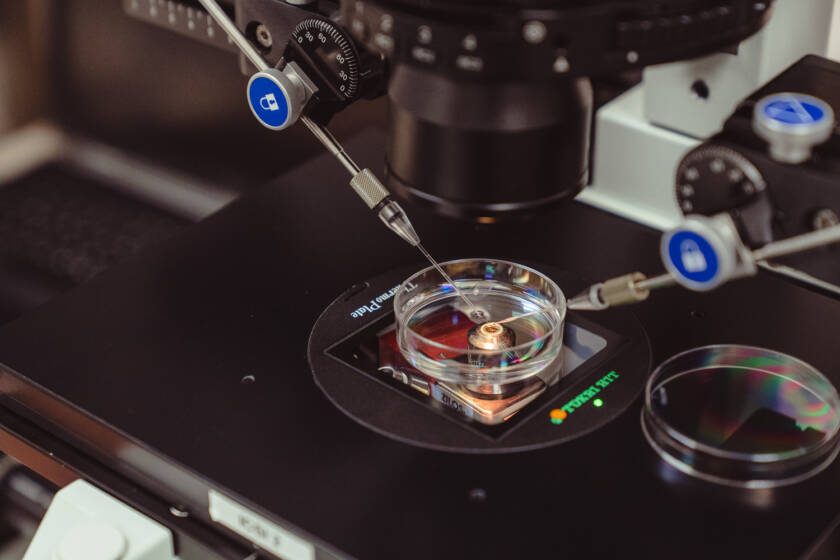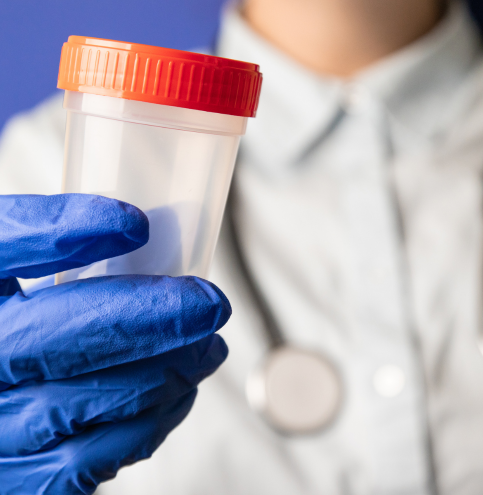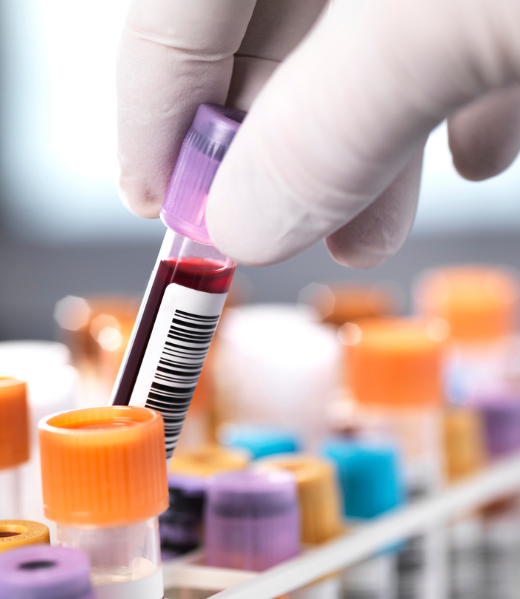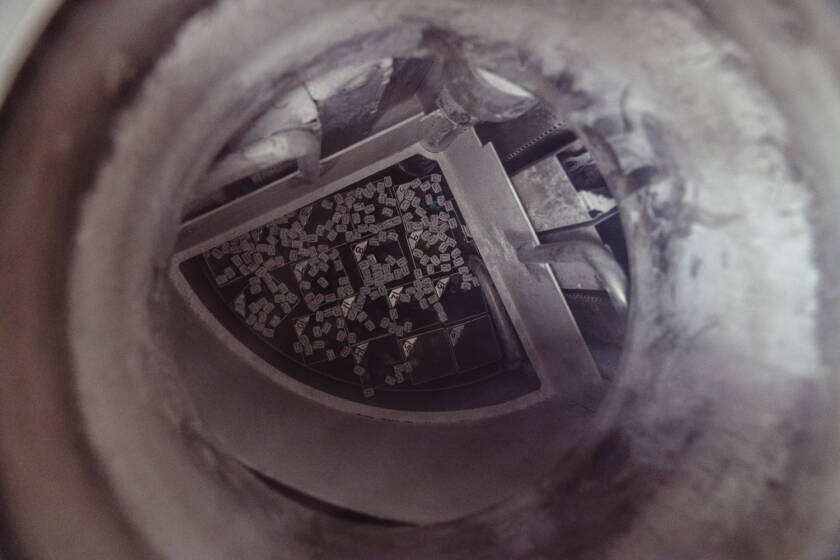
Fertility TreatmentsOne in six couples experience a fertility issue at some point.
One in six couples experience a fertility issue at some point.
And 6 in 10 struggle to conceive a second child.
– Dr Matthew Holland


Do You Have Fertility Concerns?
How easy is it to conceive?
Not as easy as you may think. Even a couple in their 20s without any infertility issues, has a 20% chance of getting pregnant naturally each month. Add just one mild infertility factor into the mix, and it drops to 5%. Add two, and it’s 1% — meaning it would take seven years to conceive naturally.
What factors influence male fertility?
Male infertility could be caused by weak or damaged semen, other physical issues, drug or steroid consumption, or medical/family history. Lifestyle can also influence the number and quality of sperm – and so can alcohol, drugs, nicotine, certain medications, and even environmental toxins.
There’s also azoospermia, where the male produces no sperm; and oligospermia, where he produces too little. These conditions can exist from birth or develop later as a result of severe medical illnesses, including mumps and some sexually transmitted diseases, or from a severe testicle injury, tumour, or another problem.
Inability to ejaculate normally can prevent conception, too, and can be caused by many factors, including diabetes, surgery of the prostate gland or urethra, blood pressure medication, or impotence.
How can fertility be tested?
For men, it’s a full blood count and semen analysis. And for both genders, a variety of tests can show if the man or woman is forming antibodies that are attacking the sperm. For women specifically, it’s a little more involved.
What causes infertility?
An egg, released by the ovaries, must be in the fallopian tube ready to be fertilised, and the sperm must be healthy so that at least one can swim into her fallopian tubes. Next, the fertilised egg (embryo) must make its way into the uterus, implant in the uterine lining, and be sustained there while it grows. Impairment at any one stage can cause infertility.
What factors influence female fertility?
The most common factors are ovulation disorders, which are signalled by irregular menstrual periods or a lack of periods altogether (amenorrhea). Simple lifestyle factors like stress, diet, or athletic training, can also affect a woman’s hormonal balance; and occasionally, a medical problem like a pituitary gland tumour.
Blockage of the fallopian tubes at one or both ends is another frequent issue: where the egg can’t travel through the tubes into the uterus. This can result from pelvic inflammatory disease, surgery for an ectopic pregnancy (when the embryo implants in the fallopian tube rather than in the uterus), or other problems, like endometriosis (the abnormal presence of uterine lining cells in other pelvic organs).
A medical evaluation may determine whether a couple’s infertility is due to these or other causes. If a medical and sexual history doesn’t reveal an obvious problem, like improperly timed intercourse or absence of ovulation, more specific tests may be needed.
Female Physical Fertility Tests
Hysterosalpingogram
We can x-ray the fallopian tubes and uterus after being injected with dye, to show if the tubes are open and to show the shape of the uterus.
Laparoscopy
This is an examination of the tubes and other female organs for disease, using a miniature light-transmitting tube called a laparoscope. The tube is inserted into the abdomen through a one-inch incision below the navel, usually while the woman is under general anaesthesia.
Polycystic Ovarian Syndrome or PCOS
PCOS is a common cause of female infertility. While not a direct genetic test, investigating the genetic basis of PCOS may provide insights into its development and manifestation.
Endometriosis
Endometriosis, a condition where tissue similar to the lining of the uterus grows outside the uterus, can contribute to infertility. Genetic studies are ongoing to understand the genetic factors associated with endometriosis.
Endometrial biopsy
We might also perform a close inspection of a small shred of uterine lining to see if the monthly changes in the lining are normal.
Ovulation Testing
First, we can test to see if the woman is ovulating each month — by charting changes in morning body temperature, ultrasound, using an ovulation test kit (available over the counter), or examining cervical mucus, which undergoes a series of hormone-induced changes throughout the menstrual cycle.
Ovarian Reserve testing
We can also assess the quantity and quality of a woman’s eggs. Using a test like Anti-Müllerian Hormone (AMH), where her hormone levels may be indicative of her reproductive potential.
Pre-Conception Genetic Testing
Karyotypic Test
This test examines the number and structure of chromosomes in an individual’s cells. Chromosomal abnormalities, such as translocations or aneuploidy, can be associated with infertility and recurrent miscarriages.
Fragile X Syndrome
Fragile X syndrome is a genetic condition that can affect both males and females. Testing for Fragile X is often recommended, as carriers of the Fragile X gene may experience fertility issues.
Single gene disorders
Some genetic disorders, such as cystic fibrosis or sickle cell anaemia, can impact fertility. Carrier testing can help identify whether an individual carries a genetic mutation associated with such disorders.
IVF, Egg and Sperm Freezing, Fertility Testing



